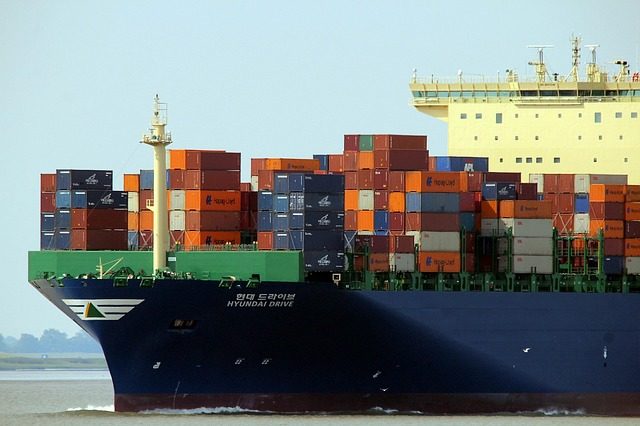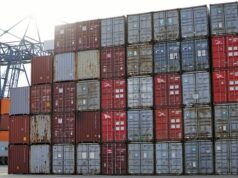The Philippine Bureau of Customs (BOC) will adopt an entirely new system for the issuance and processing of the pre-lodgement control order applicable to import, export and transshipped goods with derogatory information prior to lodgement of goods declaration.
A pre-lodgement control order refers to a written order issued by the Customs commissioner, district collector, or other customs officers authorized in writing by the Customs commissioner before the goods declaration is lodged or when no goods declaration is lodged, based on grounds stated in Customs Memorandum Order (CMO) No. 31-2018 so as “to prevent the illegal importation [of goods] or their release.”
CMO 31-2018, which provides the guidelines for issuing and processing pre-lodgment alert orders, was signed on December 19 by Customs Commissioner Rey Leonardo Guerrero and will take effect 15 days after publication in a newspaper of general circulation.
“A pre-lodgement control order… is just an internal guideline of the Bureau, authorizing specific Customs officials to exercise jurisdiction over imported goods with specified derogatory information prior to lodgement of goods declaration. PLCO is a new procedure as far as the implementation of the CMTA (Customs Modernization and Tariff Act) is concerned. It is quite similar to a manifest alert when TCCP (Tariff and Customs Code of the Philippines) was not yet amended,” BOC spokesman Atty Erastus Sandino Austria explained to Asia Customs & Trade.
In 2016, BOC issued a draft customs administrative order (CAO) that would operationalize how alert orders, including pre-lodgment control orders, were to be issued and processed pursuant to the CMTA. A signed CAO has yet to be released.
Under CMO 31-2018, Guerrero said a pre-lodgement control order “should not be an instrument for extortion and harassment but an instrument or tool for validation that correct description and proper method of valuation of goods is being observed.”
The CMO applies to imports when the goods, or the carrier of these goods, are within the territorial jurisdiction of the Philippines. It covers even the carrier that has not entered the country’s territorial jurisdiction, if the goods are reflected in the advance electronic manifest submitted to BOC.
In addition, CMO 31-2018 covers exports before an export declaration is lodged or when no export declaration is lodged, or goods for transshipment.
Basis for issuance of order
A pre-lodgment control order will be issued based on derogatory information regarding specific allegations of violations, including unmanifested goods found on any vessel or aircraft and that require a manifest; outright smuggling as defined in Section 102 (ff) of the CMTA; prohibited goods; restricted goods verified with the regulatory agency to be without permits except when the regulatory agency allows application of permit after the arrival but before physical release from customs jurisdictions; and importation contains products of illicit trade which pose danger to the environment, public health, safety, and security.
A pre-lodgement control order may be issued the moment a vessel, aircraft, or other carrier enters the territorial jurisdiction of the Philippines intending to unload the goods, but prior to lodgment of goods declaration, if applicable. It may also be issued even if the carrier has not yet entered Philippine territory but the goods are reflected in the advance electronic manifest, or when the carrier of goods for transshipment enters Philippine territory.
If the shipment has arrived or has even been discharged and no goods declaration is lodged, the district collector shall notify in writing the shipping line, the port authority or terminal facility operator, the consignee/owner or his authorized representative, and the value-added service providers, if applicable, of the issuance of the pre-lodgement control order.
The issuance of pre-lodgment control order should not prevent the lodgment of goods declaration.
If a goods declaration is lodged, the pre-lodgment control order shall be converted into an alert order and the rules on alert orders shall apply.
Within 48 hours from discharge of the last package or issuance of the pre-lodgement control order, whichever is later, the district collector will schedule a physical or non-intrusive inspection of the goods.
CMO 31-2018 notes that if despite due notice, the consignee, customs broker or their authorized representative is absent, the conduct of physical or non-intrusive inspection will continue.
Within 48 hours from inspection, or within 24 hours in the case of perishable goods, the examiner will recommend to the district collector to either lift the pre-lodgement control order or issue a warrant of seizure and detention, whichever is applicable, furnishing the Customs commissioner a copy of the recommendation.
Within 48 hours from receipt of the pre-lodgment control order, when appropriate, by the Office of the District Collector, a non-intrusive inspection or physical examination should be conducted.
The district collector with jurisdiction over the goods will determine how the examination shall be done depending on the nature of the goods and alleged violation committed.
In case the pre-lodgement control order pertains to 25 containers or more, containers to be examined may be limited to 30% of the total number of containers. However, if a violation is determined during examination of the selected containers, the entire shipment will be subject to full examination. But CMO 13-2018 notes that the district collector must ensure that while 30% of the total number of containers of the alerted shipment is being examined, the remaining 70% must remain within the port.
The cost of the physical examination of shipments under a pre-lodgement control order shall be borne by BOC, according to CMO 31-2018.
Central clearing house
Under CMO 31-2018, BOC will create a central clearing house under the Office of the Commissioner for the pre-lodgement control order. The clearing house will coordinate and monitor all pre-lodgement control orders issued under CMO 31-2018 to avoid double issuance against shipments and will reflect the imposition or lifting of any pre-lodgment to the customs information/processing system.
The central clearing house will be furnished a copy of the pre-lodgment control order within 24 hours of its issuance, including the basis for the issuance.
The central clearing house will act as repository for all records, including final disposition of the pre-lodgment order. It will submit quarterly status reports to the finance secretary on all orders issued under CMO 31-2018.
Under CMO 31-2018, BOC may also establish customs outposts at all exit gates of all customs premises and assign customs personnel there.
Consignees, importers, owners, customs brokers, or attorneys-in-fact whose shipments are the subject of a pre-lodgement control order have the right, under CMO 31-2018, to be notified; to be informed of the conduct of the examination pursuant to the pre-lodgement control order issued and the results; and to a speedy disposition of the order.
BOC will develop an ICT-enabled system that will reflect and monitor the issuance and lifting of the pre-lodgement control order.
Any BOC employee who violates CMO 31-2018 or causes undue delay in the examination of shipments subject of pre-lodgment control order may be administratively or criminally charged. – Roumina Pablo









